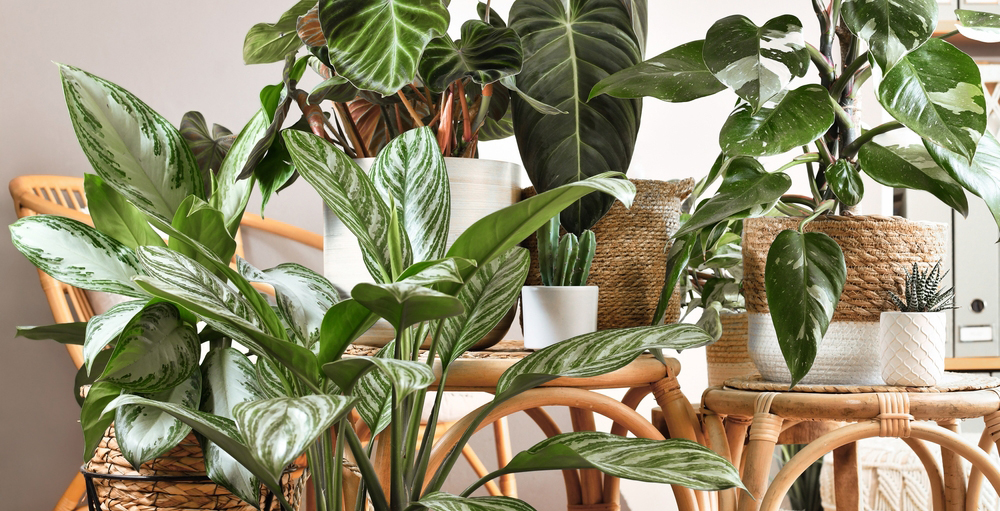Summer is right around the corner and as the days get lighter and brighter many are inspired to make the most of the growing season and bring greenery inside, however it’s crucial to be aware of any potential dangers lurking in your leafy houseplants, to protect ourselves, and our pets, from adverse reactions.
As such, flower and gift delivery service, Eflorist, has identified the most common poisonous houseplants that we’re at risk of in our homes without even realising it.
Eflorist’s flower expert, David Denyer, also offers his advice and guidance on how to properly dispose of toxic houseplants.
Read on to see five poisonous houseplants that you may have in your home:
- Peace Lily (Spathiphyllum)
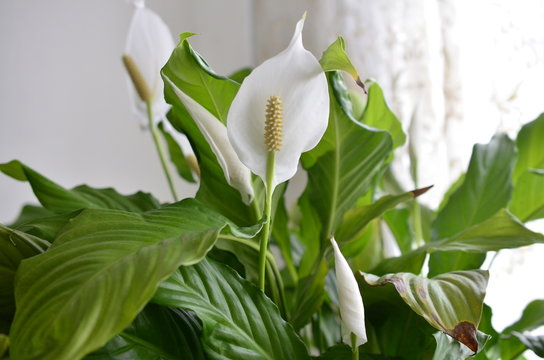
The Peace Lily, as well as being a popular gift, is a common houseplant often found in our living rooms, bedrooms, and offices with its ability to thrive in low light and purify the air – making it a perfect addition to stuffy areas.
Its white blooms add a touch of serenity, but beware—they contain calcium oxalate crystals. These crystals are toxic when ingested, and the symptoms of this include strong pain, oral irritation, swelling, and difficulty swallowing.
To prevent any issues, handle a peace lily with gloves, and keep the plant on countertops or high shelves – out of reach of children and pets.
- English Ivy (Hedera helix)
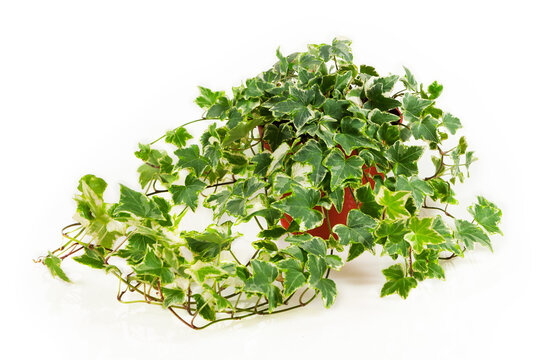
English Ivy is a stunning, but slightly rebellious houseplant. As a hanging plant, its vines are perfect for draping over shelves or hanging pots, and this resilient plant is a great low-maintenance choice for the home.
However, the leaves of English Ivy contain falcarinol and falcarindiol, which can trigger allergic reactions like dermatitis upon skin contact. To stay on its good side, it’s best to handle it with gloves, and keep out of reach from children and pets.
- Philodendron
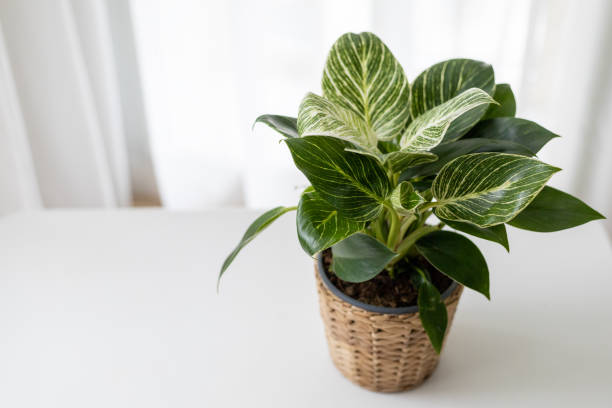
The Philodendron, a favourite in living rooms, offices, and bathrooms, is loved for its patterned, glossy leaves and low-maintenance nature—perfect for adding a touch of greenery indoors.
Thriving in indirect sunlight and humid conditions, this plant is both stylish and easy to care for, so it’s clear to see why this is a popular choice.
However, this house plant also contains calcium oxalate crystals, so to avoid any potential issues, place it out of reach of children and pets, ideally on countertops or windowsills, and handle with gloves.
- Dumb Cane (Dieffenbachia)
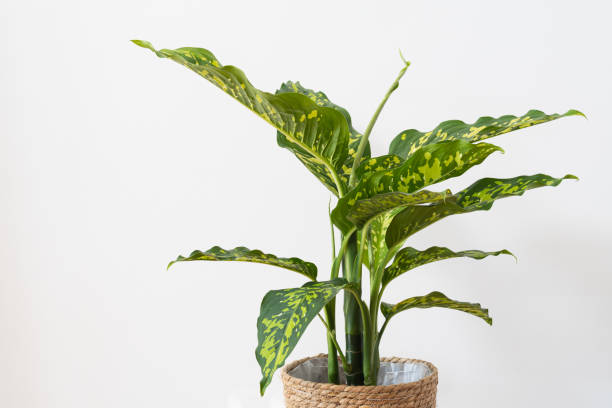
The Dumb Cane is a beloved indoor houseplant known for its vibrant foliage, making it an ideal choice to brighten up any living space in the home. Known for its resilience in low to medium light conditions and minimal upkeep, it’s the perfect for busy plant enthusiasts.
However, it’s important to note that the Dumb Cane also contains calcium oxalate crystals, which again, can be harmful if ingested. For the safety of children and pets, it should be placed out of their reach.
- Daffodils (Narcissus)
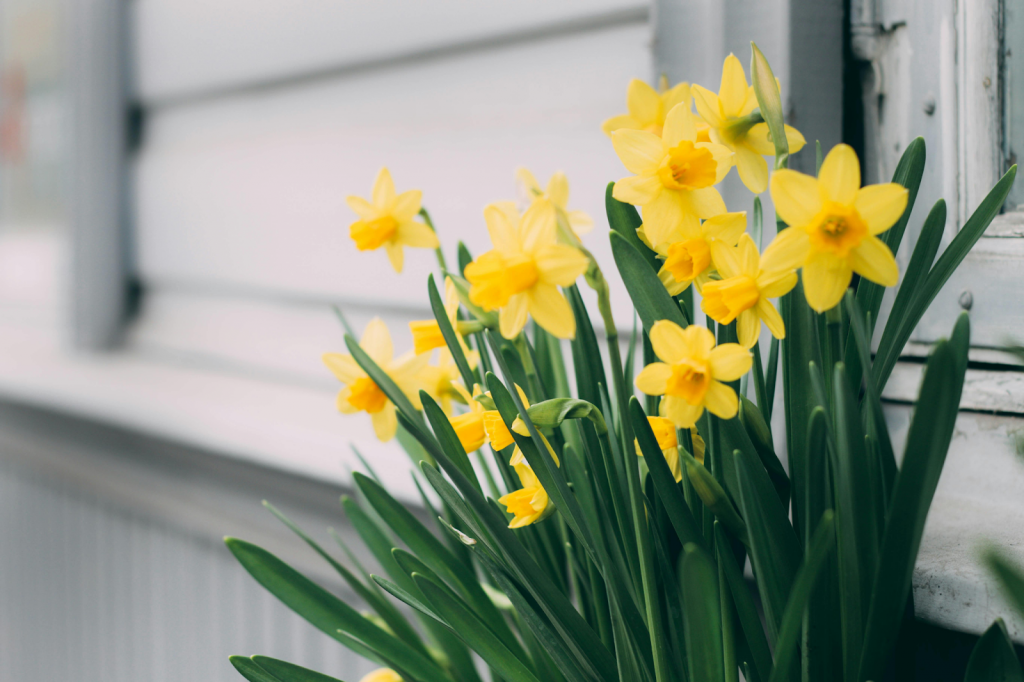
Daffodils are a cheerful addition to any home, and are often found in vases, garden beds, or as potted plants. However, daffodils contain lycorine, an alkaloid that can cause severe digestive issues such as nausea, vomiting, and diarrhoea, with the bulbs being particularly toxic, posing a significant risk to children and pets.
To keep everyone safe, place daffodils out of reach on high shelves or window sills, and avoid using them in areas accessible to pets.
David Denyer, Flower Expert at Eflorist said: “All of these common houseplants are toxic to pets including dogs, cats, rabbits, and even hamsters, so it’s important to be aware of any potential issues so you can try to prevent any issues from the get-go.
“If you do have a houseplant that you know is toxic in your home, it’s important to reposition them as soon as possible to prevent any harm to anyone who gets their hands, or paws, on them.
“However, if you aren’t confident in simply repositioning them, remove them from your home – but be sure to do this correctly.
“When disposing of toxic houseplants, always make sure to wear gloves when handling. Seal the plant in a bag when putting it in the bin to protect any from any small children or animals.

